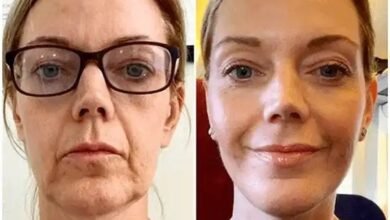
Understanding Menopause and Its Challenges
Why Choose Non-Hormonal Treatments?
Non-hormonal treatments provide a safer alternative for women who prefer to avoid hormonal therapy. These treatments focus on lifestyle adjustments, natural compounds, and advanced medical techniques to alleviate menopausal discomfort. They are particularly beneficial for women with health conditions that restrict hormone use or those who want a holistic approach.
Lifestyle Adjustments for Menopausal Relief
Dietary Modifications for Hormonal Balance
A well-balanced diet plays a crucial role in managing menopause. Consuming nutrient-rich foods can help regulate body functions and improve overall well-being. Adding protein, fiber, and essential fatty acids can help maintain energy levels and promote a healthy metabolism.
Physical Activity and Menopause Management
Regular physical activity is a powerful non-hormonal approach to easing menopausal symptoms. Engaging in moderate exercise, such as walking, yoga, or swimming, can enhance mood, boost energy, and improve bone strength.
Stress Reduction Techniques
Managing stress is essential during menopause. Incorporating relaxation techniques such as meditation, deep breathing, and mindfulness can help regulate emotions and create a sense of calmness.
Advanced Non-Hormonal Treatments
Acupuncture for Menopause Relief
Acupuncture is a traditional practice that stimulates specific points in the body to balance energy flow. Many women find relief from hot flashes, sleep disturbances, and anxiety through acupuncture sessions.
Herbal and Plant-Based Supplements
Certain plant-based supplements are widely used to manage menopause. These natural compounds help support hormonal fluctuations and alleviate discomfort. Scientific research supports their effectiveness in providing relief.
Cognitive Behavioral Therapy (CBT) for Mood Regulation
CBT is a psychological approach that helps women cope with emotional and cognitive changes during menopause. By adopting positive thought patterns, women can manage stress, anxiety, and mood swings more effectively.
Biofeedback Therapy for Symptom Control
Biofeedback therapy uses sensors to monitor physiological functions and help women gain better control over their body’s responses to menopause-related discomfort. This technique is beneficial for managing stress-related symptoms.
Sleep Enhancement Strategies for Menopausal Women
Optimizing Sleep Hygiene
Good sleep hygiene practices improve sleep quality during menopause. Maintaining a consistent sleep schedule, creating a comfortable sleeping environment, and reducing screen time before bed contribute to restful nights.
Natural Sleep Aids
Certain herbal teas and relaxation techniques promote deep sleep, helping women overcome nighttime disturbances without relying on medication.
Bone and Joint Health Support
Nutritional Support for Stronger Bones
Maintaining bone density is essential during menopause. Consuming calcium-rich foods and vitamin D sources can support bone health and reduce the risk of weakness and discomfort.
Physical Therapy for Joint Health
Targeted exercises and stretches improve flexibility and joint function, making movement more comfortable and reducing stiffness.
Enhancing Cognitive Function During Menopause
Brain-Boosting Nutrients
Certain nutrients play a role in enhancing cognitive function during menopause. Omega-3 fatty acids, antioxidants, and hydration contribute to sharper memory and focus.
Mental Exercises for Clarity
Engaging in brain-stimulating activities such as puzzles, reading, and problem-solving exercises can help maintain mental sharpness.
Conclusion
Non-hormonal treatments for menopause in Abu Dhabi provide a range of options to help women manage their symptoms effectively. By incorporating lifestyle adjustments, natural therapies, and advanced treatments, women can find relief without relying on hormonal solutions. Each individual’s experience is unique, and exploring different approaches can lead to a more comfortable transition through menopause.
FAQs
How effective are non-hormonal treatments for menopause?
Non-hormonal treatments can be highly effective in managing menopause symptoms. Their success depends on an individual’s body response and consistency in following recommended approaches.
Can lifestyle changes alone help with menopause symptoms?
Yes, lifestyle changes such as a balanced diet, regular exercise, and stress management play a significant role in reducing menopause symptoms naturally.
Is acupuncture a reliable treatment for menopause relief?
Acupuncture has been shown to provide relief from menopause-related symptoms, particularly hot flashes, mood swings, and sleep disturbances.
What is the best way to improve sleep during menopause?
Improving sleep hygiene, reducing stress, and using natural relaxation techniques can help enhance sleep quality during menopause.
Can non-hormonal treatments help with mood swings?
Yes, techniques such as cognitive behavioral therapy, meditation, and biofeedback therapy can effectively manage mood fluctuations during menopause.



